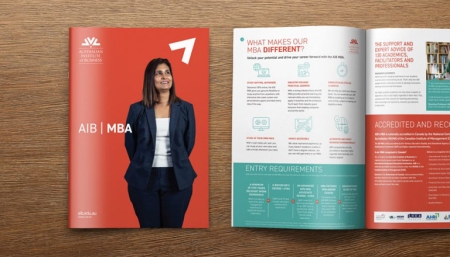Skills You Can Learn In A Specialised HR MBA Degree

An MBA degree offers a wide variety of choices and opportunities for its students – across all sectors of a typical corporate business. People are now beginning to see MBA degrees as a crucial element in the success of their business careers – the skills and knowledge provided by a higher education qualification like an MBA are invaluable in many companies.
While a generic MBA degree allows students to gain or improve a variety of key business skills including leadership, finance, management, operations and governance, a specialised MBA in Human Resource Management can allow a student to become an expert in a field that is generally seen as critical to the success of a business.
The role of a manager or executive in Human Resources has evolved over the years – where once their responsibilities focused solely on staff recruitment, HR specialists are now asked to maintain policies and procedures, monitor workplace health and safety, build and improve corporate culture and drive staff learning and development. There are many key skills to be learnt in a specialised MBA degree to assist with managing these business needs.
Strategic Planning:
In a climate where hiring the right people for your organisation is critical, it’s important to have the skills and knowledge to make strategic business decisions and plan for all eventualities. An MBA degree specialising in Human Resource Management not only supports the skills related to hiring staff – it allows you to strategically plan for the needs and requirements of your business, and ensure that anyone being hired for a role is the right fit for your organisation.
In addition, the MBA degree specialising in Human Resource Management as provided by the Australian Institute of Business offers a unit in succession planning – a strategic topic that allows students to explore and evaluate the succession plans within their own business or organisation, and determine how those plans may be altered or improved for the benefit of their organisation. This is another critical strategy to review in order to plan for the ongoing success of a business.
Innovation and Development:
A major element of the evolving human resources discipline is the ability to adapt and evolve company hiring and culture policies in order to fit the current climate for any given industry. An MBA degree gives students the foundation of theoretical knowledge and the exposure to leading case studies and practical examples – which is a necessity for planning for future innovations within a business. Having the background understanding and access to newfound knowledge puts HR managers and executives in the best possible position to develop their own organisation.
Continuous Support and Monitoring:
In addition to hiring new staff, human resources departments are continually maintaining the development and performance of ongoing employees, also – which is where an MBA can help. In addition to the courses focusing on hiring strategies, the Human Resource Management MBA specialisation also contains coursework focusing on leadership and performance management. This coursework allows students to explore the current requirements for learning and performance management in their organisation, and determine how an organisation could be performing better.
What do you think – would you be interested in studying a specialisation in Human Resource Management? How important is Human Resources in your organisation? Let us know in the comments.



